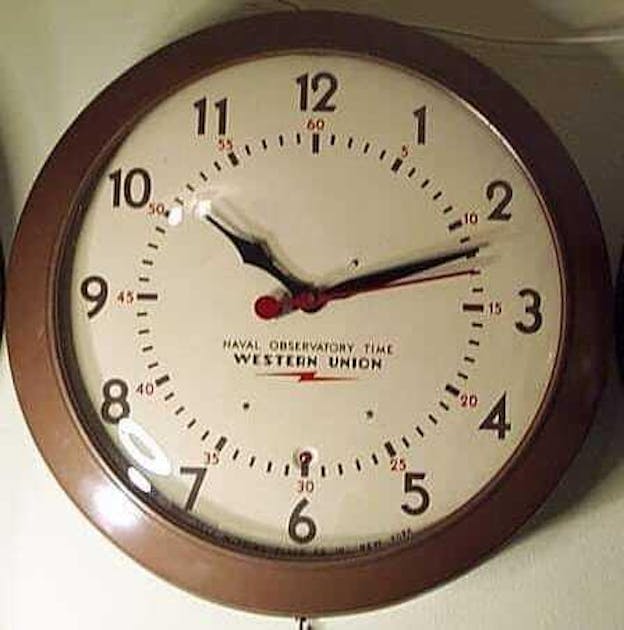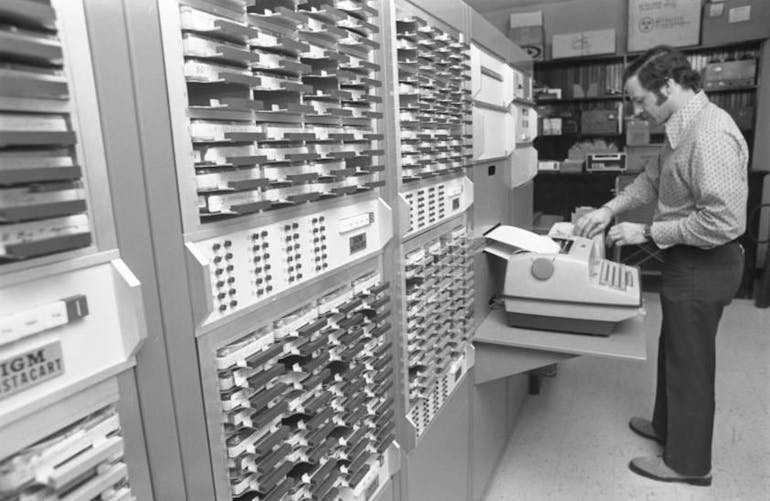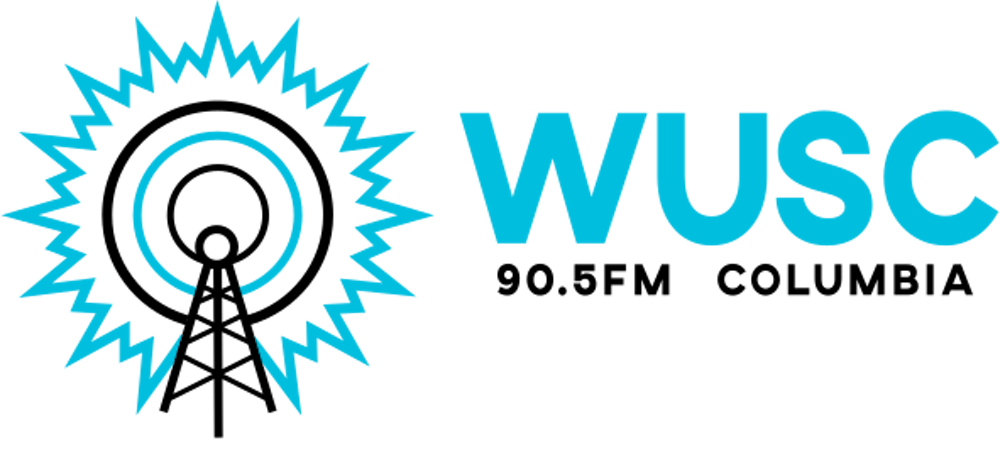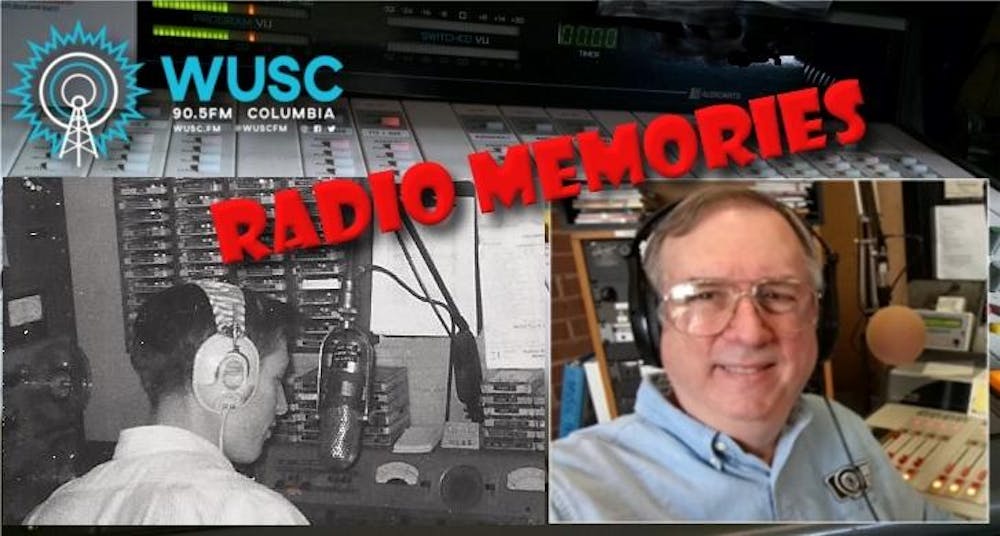On the Air at WIS Radio
There is a phrase that often appeared in job descriptions back in the day; “Will perform all other duties as required.” This was a catch all term that meant that you had to do whatever the station wanted you to do.
WIS Radio had a huge International Good Music (IGM) automation system driven by a Digital Equipment Corporation (DEC) PDP-8M computer which controlled six IGM Instacart machines each of which held 48 individual cartridges that could be accessed just as if they were in 48 individual cart machines. In addition, the automation could operate the three Ampex 440 reel to reel machines and the 6 ITC cart machines, the output of our talk studio and the NBC Radio Network. But there was no music in the automation as it was operated in “DJ Assist” mode that started the next event; NBC, commercial break ETC at the push of a button under the input control on the audio board. So WIS Radio was a live station which required an announcer in Master Control doing either a record show or a talk show. This announcer also was responsible for operating the transmitter and making the required transmitter readings every half hour. So, we had live DJs on the board during the five-day parts on the Monday through Friday schedule; Sign On/Morning Drive, Late mornings, Early Afternoon, Afternoon Drive and evenings. Plus, we had 2 or three part time DJs, usually University Students that missed in during the weekends, with longer shifts.
So, our program director always had to juggle the announcer staff around to cover, illnesses, vacations and other times when the scheduled announcer could not work. When he heard that I had on air experience he knew that I could sit in on a show on rare occasions. So, about a dozen times during my three years there, I would be asked to help out, mostly on weekends in addition to my regular duties.
In many ways, it was more of a return to my WUSC College Radio days than my WCOS Top 40 days; WIS played music from albums not 45s in a mixture of the middle of the road format with some light rock. So, I could be playing some Percy Faith followed by Starbuck, The Sansford -Townsend Band or The Starlight Vocal Band. So, I had to tone back my announcing style to what it was ten years before. I also had to time out my music selections in order to be able to start the NBC News on the top of each hour to the second.

These Western Union clocks were common in radio and TV stations all over the country. At exactly the top of the hour Western Union would send a pulse timed to the National Observatory Time in Washington that would reset the second hand to show zero seconds.
On weekend shifts, I was also responsible for announcing the local news, very similar to what I had done at WCOS with the exception that there were some pre-taped stories from out news department on carts to mix into the newscast.
After I had done a couple of shows, I felt pretty comfortable being back in the saddle. One of the advantages of doing those shows was it gave me a chance to operate the equipment myself to get a good feel for any of the problems that the announcers might complain about. One of those problems was that sometimes when the announcer pushed the “next event” button for the automation it would start the next two, one after another. So, I played around with the button and found that if the operator “jabbed” the button with a flourish, the automation was far more likely to misbehave than if he or she gently pushed the button. After a conversation with the DJs about how they needed to push the button resulted in absolutely no change in behavior, I designed a “de-bounce” circuit to reduce the chance of double starts. But alas, I could never completely stop the problem from happening.

WIS has six of these Instacart machines, each held 48 carts.
Adding to that problem, the IGM Instacart machines had a bad habit of firing off up to 48 carts at one time when there was a thunderstorm and lightning struck the towers. They also had very fragile electronics with respect to the power surges which required replacing components after almost every thunderstorm. The DJs nicknamed the automation system “Bozo”, and I had to agree that was a pretty good description.
Once in a while, usually during inclement weather, I was called upon to assist the News Department. I remember one night it started snowing while I was working overnight to replace some components in the transmitter during our Midnight to 6 AM off the air period. The snow was 4 -5” deep and there was very little snow removal gear available to clear the roads. I still had my Karman – Ghia so I was not too worried about getting home. Our morning DJ was delayed in getting to the station, so I signed the station on and started his show. When he arrived, I noticed that the morning news crew had not arrived. The office staff was also unable to get to the station. Station management reached out to the National Guard for assistance in getting critical personnel to the station, but it would take some time.
When our News Director arrived, he asked me to take one of our two-way radio equipped news cars out and report the road conditions. I was able to do that, making a single circuit of the city, telling everybody not to try to drive in the snow. The irony of that was not lost on me.
I finally arrived back at the station around 10 AM and immediately left for home; the normally half-hour commute took me over 3 hours that day.

Rick Wrigley
I was born in a great radio town, Jacksonville, FL. So it was only natural that I joined WUSC (AM at the time) in my first semester in 1963. I went on to a career in commercial radio and television in Columbia, working with WCOS-AM & FM, WIS-TV, WIS Radio, SCETV and PBS. I'm retired now, giving back since 2010 to the station that started my career, WUSC-FM. If you did the math, you would know that I celebrated the 60th anniversary of my first radio show ever in November 2023.

